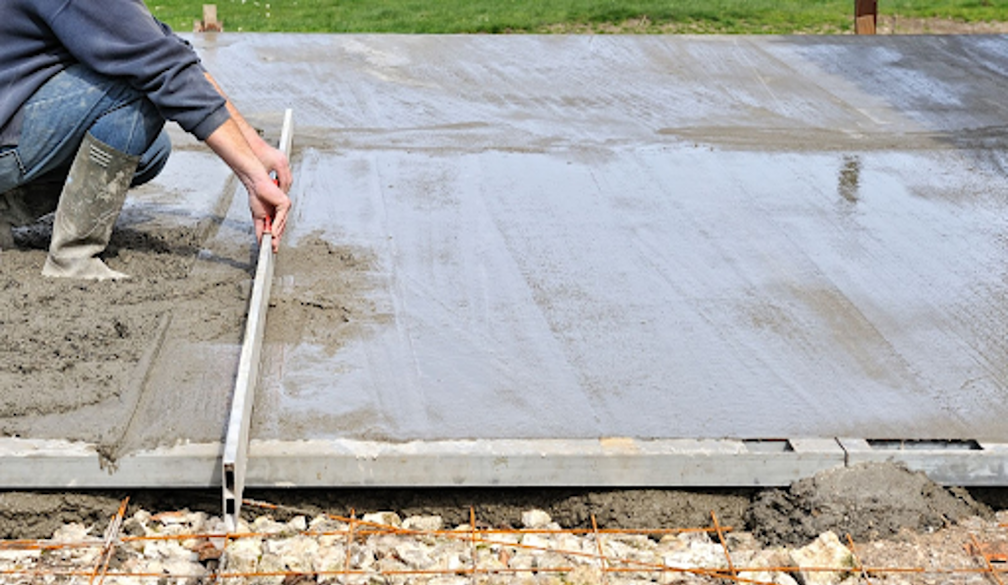Buying Property in Sydney - Navigating a Dynamic Market

Sydney's property market is a perennial topic of discussion and aspiration. Its iconic harbor, vibrant culture, and strong economy make it a desirable place to live and invest. However, the decision to buy property in this bustling city is complex, influenced by various economic factors, market trends, and individual circumstances. So, is now a good time to enter the Sydney property market? Let's delve into the key considerations.Understanding Sydney's Property Landscape
Sydney's property market is known for its dynamic nature, marked by periods of rapid growth and occasional corrections. It's a market heavily influenced by supply and demand, interest rates, economic conditions, and government policies. To determine if it's a suitable time to buy, one must first grasp the current state of this landscape.
Recent trends have shown fluctuating prices, reflecting broader economic uncertainties and adjustments to interest rate hikes. While Sydney has historically seen strong capital growth, affordability remains a significant challenge for many. The median house price remains high, placing property ownership out of reach for some buyers.Factors Influencing the Market
Several factors play crucial roles in shaping the Sydney property market:
1. Interest Rates: Interest rates set by the Reserve Bank of Australia (RBA) significantly impact borrowing costs and, consequently, demand. Higher interest rates can cool the market by making mortgages more expensive, while lower rates can stimulate demand. The current interest rate environment needs careful consideration, as it affects both affordability and investment returns.
2. Economic Conditions: The overall economic health of Australia, including employment rates, wage growth, and inflation, influences consumer confidence and spending, which in turn affects the property market. A strong economy typically supports higher property values, while economic downturns can lead to price stagnation or decline.
3. Supply and Demand: Sydney's population growth and limited land availability contribute to a supply-demand imbalance, particularly in desirable areas. New developments and infrastructure projects can impact supply, but historically, demand has often outstripped availability, driving up prices.
4. Government Policies: Government initiatives, such as first-home buyer grants, stamp duty concessions, and infrastructure investments, can influence market activity. These policies may provide incentives for buyers or stimulate growth in specific regions, such as Western Sydney Growth Corridors.
5. Market Sentiment: Buyer and seller confidence can drive market dynamics. Fear of missing out (FOMO) can push prices up during boom times, while uncertainty can lead to a cautious approach and slower sales during corrections.Pros of Buying Property in Sydney Now
Despite challenges, several potential advantages exist for those considering a purchase:
1. Long-Term Growth Potential: Historically, Sydney property has delivered strong long-term capital growth. While short-term fluctuations are inevitable, the city's enduring appeal and ongoing demand make it a solid investment prospect for those with a long-term horizon.
2. Rental Income: Sydney boasts a robust rental market, driven by high demand and a diverse population. Investing in a property for rental income can provide a steady stream of cash flow, particularly in areas with high rental yields, like Wollongong and the Illawarra.
3. Infrastructure Development: Sydney is undergoing significant infrastructure development, particularly in Western Sydney Growth Corridors. Projects such as the Western Sydney Airport and Aerotropolis are expected to boost property values and attract investment. This suggests potential for capital appreciation in these regions.
4. Opportunity in a Balanced Market: If the market is experiencing a period of stabilization or slight correction, it could present opportunities for buyers to negotiate better prices and secure properties that were previously unaffordable.Cons of Buying Property in Sydney Now
However, potential buyers should also be aware of the challenges:
1. High Entry Costs: Sydney's property market is notoriously expensive. Even with recent adjustments, the median prices remain high, requiring significant savings for a deposit and substantial ongoing mortgage repayments.
2. Interest Rate Uncertainty: Fluctuating interest rates can impact affordability and borrowing capacity. Future rate hikes could increase mortgage repayments and put pressure on household budgets.
3. Economic Uncertainty: Broader economic conditions and potential downturns can affect property values and rental demand. Job security and wage growth need to be considered before committing to a major purchase.
4. Stamp Duty and Other Costs: Purchasing property in Sydney involves additional costs, such as stamp duty, legal fees, and building inspections. These costs can add significantly to the overall expense. Stamp duty for investors can be higher than for owner-occupiers.Identifying Potential Growth Areas
If you're considering buying, it's crucial to research and identify areas with potential for growth. According to the document, several regions in New South Wales (NSW) show promising prospects. Here are some key takeaways:
1. Regional NSW: Areas like Newcastle, the Hunter Region, Central Coast, Wollongong and the Illawarra, and regional towns such as Orange, Bathurst, and Wagga Wagga are gaining momentum. Remote work flexibility, government incentives, and infrastructure spending are driving growth in these areas.
2. Western Sydney Growth Corridors: Infrastructure projects like the Western Sydney Airport and Aerotropolis are driving demand in Penrith, Liverpool, and Campbelltown. These areas offer relatively more affordable options compared to inner Sydney.
3. Existing Hubs: Suburbs with strong infrastructure, education, and healthcare sectors continue to be attractive. For instance, areas within Newcastle and Wollongong are noted for their appeal.Making an Informed Decision
Deciding whether to buy property in Sydney now requires careful consideration of personal circumstances, financial readiness, and market conditions. It's essential to:
1. Assess Your Financial Position: Evaluate your savings, income, and borrowing capacity. Ensure you have enough for a deposit, fees, and ongoing repayments. Review your credit score, as it affects loan approval chances.
2. Research Thoroughly: Stay informed about market trends, interest rate changes, and economic indicators. Utilize online tools and consult with property professionals. For detailed insights, considering reviewing property reports or speaking with local agents to identify areas matching specific criteria.
3. Explore Financing Options: Compare loan types and negotiate with lenders to secure competitive rates. Consider using mortgage brokers to navigate the lending landscape. Mortgage brokers act as intermediaries between borrowers and lenders.
4. Set Clear Goals: Define your investment objectives, whether it's long-term capital growth, rental income, or a combination of both. Understanding your goals will help shape your strategy.
5. Be Patient: The property market can fluctuate. Don't rush into a decision. Take your time to find the right property and negotiate the best possible deal.Conclusion
Buying property in Sydney is a significant decision with both opportunities and risks. While the high entry costs and interest rate uncertainties present challenges, the city's long-term growth potential and robust rental market make it an attractive investment destination. By conducting thorough research, understanding the market dynamics, and assessing your personal financial readiness, you can make an informed decision that aligns with your goals.
Whether now is the right time to buy depends on your individual circumstances and investment strategy.







